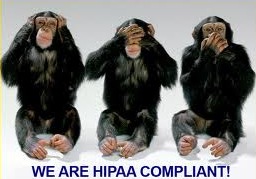 Joey Furlong is a Bethlehem, NY 4th grader interned in hospital for a life-threatening condition and awaiting brain surgery. This week, he was approached by one of the teachers employed by the hospital, who wanted the boy to take a standardized test. CBS News reports (Tami is Joey’s mom),
Joey Furlong is a Bethlehem, NY 4th grader interned in hospital for a life-threatening condition and awaiting brain surgery. This week, he was approached by one of the teachers employed by the hospital, who wanted the boy to take a standardized test. CBS News reports (Tami is Joey’s mom),
Tami’s husband was in the room when one of the teachers came in talking about the test but she wonders what would have happened had he not been, “I would like to hope she would not have taken his arm that has an IV and oximeter on it and put a number 2 pencil in it, I would like to hope that she would wait to talk to the family.”
Indeed. Public education advocate Diane Ravitch sums it up well: “No child escapes testing. Even while they are waiting for brain surgery.”
This is disturbing on so many levels:
- How could the hospital participate in the harassment of that poor, unwell child by sending an employee to upset him and his family over a test?
- Standardized tests have apparently come to occupy a place of value in US society that exceeds the value of a child’s life.
- Since so much importance has been placed on standardized testing, real learning has gone downhill.
See What’s Wrong With Standardized Testing and Why It’s Time to Get Rid of Standardized Testing - The hospital shares patient information with the teachers it employees. This is the very reason I won’t sign paperwork acknowledging receipt of my doctors’ HIPAA privacy policies (more on this below).
- Why did the hospital teacher learn that Joey had not taken the test, but failed to learn that his parents had arranged for him to be exempt from the requirement to take it until his health improved?
My medical practitioners inform me in HIPAA privacy policy statements which I routinely refuse to acknowledge receipt of (by signing them), that they will do everything in their power to protect my privacy. However, I know that these people haven’t got much power and that my medical records, and whatever other sensitive personal data end up in my medical file, may be shared with government and even pseudo-government workers without either my consent or my knowledge.
Acknowledging receipt of privacy policies which offer no protection might make it look like I’m in agreement with having my privacy violated. But I don’t agree. I believe that medical information should be completely confidential outside of the circle of medical and pharmaceutical staff a patient chooses to share it with. In other words, little Joey Furlong’s medical information should never have been shared with the educational department of the hospital he’s in, or his school district, or New York State, without his parents’ express consent. Joey and his family deserve both privacy and protection.
Just for the record, I also agree that medical records should be shared with urgent care medical personnel if they’re trying to save a life and viewing medical records would help them do that.

